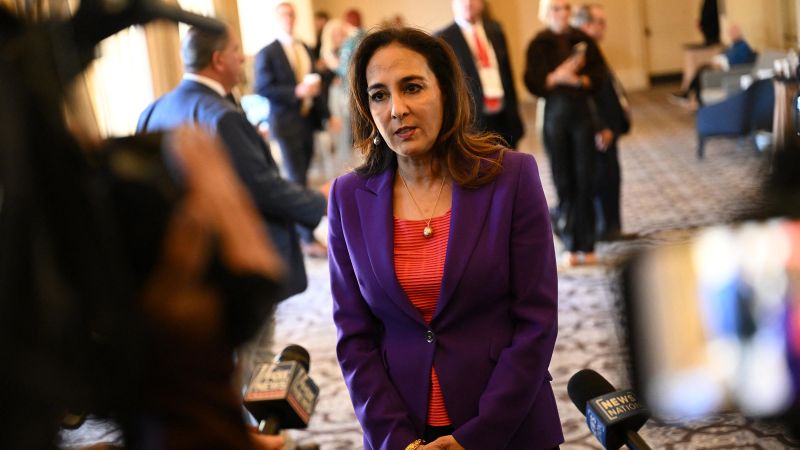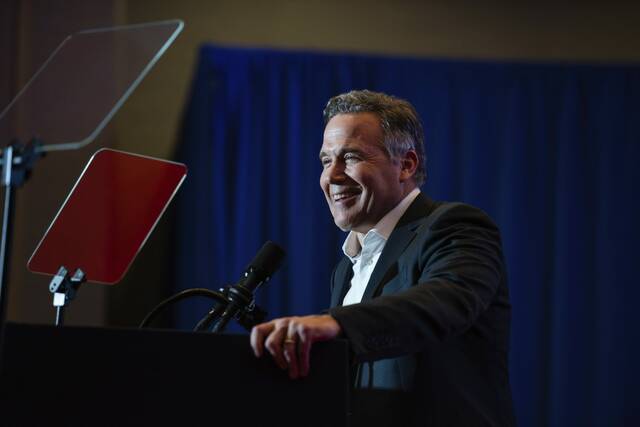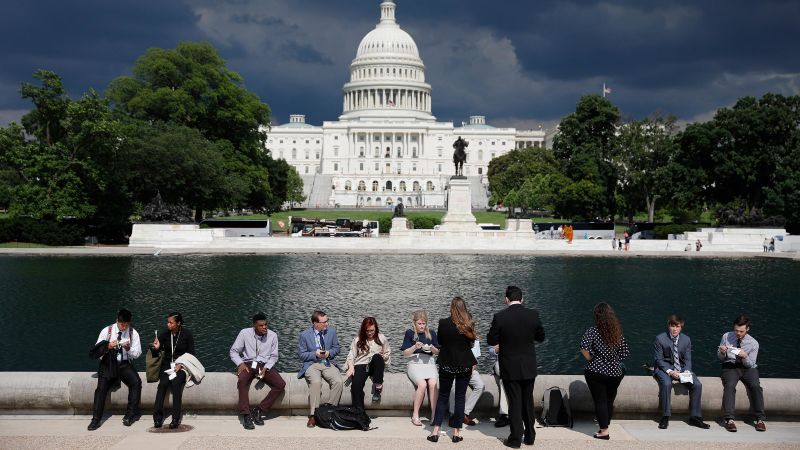CNN
—
President-elect Donald Trump’s Justice Department is preparing to go on the anti-“woke” offensive against diversity, equity and inclusion initiatives that have been a cause célèbre of the right, two sources familiar with the incoming administration’s plans told CNN.
Trump’s pick to lead the Justice Department’s storied Civil Rights Division – conservative San Francisco attorney Harmeet Dhillon – is expected to use the powerful perch to reverse many of the Biden administration’s civil rights initiatives.
If confirmed, Dhillon would be in a position to upend the division’s work on a range of hot-button areas, including transgender rights, voting and policing. In particular, the division is expected to try to dismantle DEI policies at schools, government agencies and other public institutions, according to the sources familiar with the planning.
In announcing Dhillon as his choice earlier this week, Trump specifically touted her work “suing corporations who use woke policies to discriminate against their workers.” A longtime litigator, including for Trump, she’s also been involved in a host of First Amendment lawsuits, disputes over Covid-19 restrictions and cases concerning gender-affirming care.
Decisions by schools and employers to embrace DEI initiatives have come under fierce opposition from the right in recent years. Critics say DEI programs are discriminatory and attempt to solve racial discrimination by disadvantaging other groups, particularly White Americans. But supporters insist the decades-old practice has been politicized and widely misunderstood.
Justin Levitt, who served as a deputy assistant attorney general in the Civil Rights Division under President Barack Obama, said the incoming administration is likely to turn the division away from efforts to end discrimination against minority groups and move toward ending policies aimed at helping them.
“The Civil Rights Division’s historical mandate from the beginning was to help fight against othering, was to help fight against societal branding of certain Americans as other,” Levitt said. “And I am concerned the prospective nominee’s approach has been to lean into branding people as other rather than fighting against it.”
But people who have worked closely with Dhillon tout her experience from her start as a lawyer advocating for migrants who were persecuted in their home countries and seeking asylum in the US to her more recent work on First Amendment issues.
Dhillon, an Indian-born immigrant, has been active in Republican politics since the 2000s. Her national profile was boosted two years ago when she unsuccessfully ran for chair of the Republican National Committee.
“She advocates so hard for each one of her clients,” said Mark Trammell, the executive director and general counsel for the Center of American Liberty, a legal advocacy group founded by Dhillon. “There’s just tremendous opportunity to do good for people who have been oppressed, and Harmeet loves this country. She loves the freedoms that we all benefit from.”
The incoming administration sees the Civil Rights Division as one of the most important in the Justice Department, and one where they need a Trump-aligned leader who will use it to champion a conservative view on civil rights, said a source familiar with the plans.
Dhillon’s selection, made before many other division heads have been announced, also signifies its importance to the Trump transition team, according to another source familiar with the strategy.
Created in the 1950s, the Civil Rights Division leads the Justice Department’s enforcement of federal laws intended to combat discrimination in areas such as housing, employment and education. It’s also tasked with enforcing major federal voting laws such as the Voting Rights Act of 1965.
Historically, the division under Republican administrations has been largely dormant. During Trump’s first term, for example, then-Attorney General Jeff Sessions curtailed the use of pattern-and-practice investigations, which the division would launch into local police departments accused of wrongdoing.
But under Democratic administrations, the division typically takes a much more active approach in waging high-profile civil rights battles, a pattern that has remained true during Biden’s term. Under Assistant Attorney General Kristen Clarke’s leadership, the division opened civil rights investigations into a dozen police departments.
Trump is not expected to continue those investigations or to pursue so-called consent decrees, which require federal oversight of police departments.
A key early sign of the ideological shift could emerge in the federal government’s challenge to Tennessee’s ban on gender-affirming care for minors. The Supreme Court heard arguments last week in the challenge, which was brought by Clarke’s Civil Rights Division in 2023.
But it’s possible that Trump’s solicitor general, in consultation with Dhillon, who has shown a hostility toward trans rights, will seek to flip the Justice Department’s position in the case. That, in turn, could result in the high court dropping the case altogether.
On the DEI front, Dhillon would be able to throw the full weight of the division behind legal challenges to policies from public schools and other state and local employers that the new administration opposes.
She would be limited in her ability to take private businesses to court over such issues, Levitt said. Still, the division could file friend-of-the-court briefs in cases brought by other plaintiffs against companies over their hiring and personnel practices.
In recent years, Dhillon and her law firm have carved out a record on lawsuits related to constitutional law and the First Amendment, which can cross over into the realm of law sometimes considered by the Civil Rights Division.
In the cases, she’s represented a host of known conservative figures, sometimes at odds with news organizations and being accused — or accusing others — of discriminatory actions.
In one case against Google that is still in appeals, Dhillon’s team representing the Republican National Committee unsuccessfully accused the tech company of “throttling its email messages” into spam folders because of its political views.
She also filed multiple lawsuits that have gone on for years on behalf of a Presbyterian minister seeking to hold prayer vigils on the US Capitol grounds and who couldn’t get the permits.
And she defended Fox News personality Tucker Carlson in a since-settled lawsuit from a former female producer at the network who alleged gender discrimination.
Dhillon has filed lawsuits against other major organizations, including Twitter and CNN, on behalf of the right-wing activist group Project Veritas. She took on a similar role as a lawyer for the Trump campaign suing The Washington Post in 2021.
Outside of free-speech cases, Dhillon has represented the National Association for Gun Rights in recent years in a Second Amendment case in California.
And she became part of defending the Republican National Committee in court when civil rights groups accused the party, Trump and his campaign of disenfranchising Black voters under the Voting Rights Act after the 2020 election. The case was dropped after Trump’s victory in the 2024 election.
In many of the lawsuits, Dhillon is accompanied as a lawyer by David Warrington, whom Trump recently said he would install as White House counsel.
2024-12-11 08:00:43



